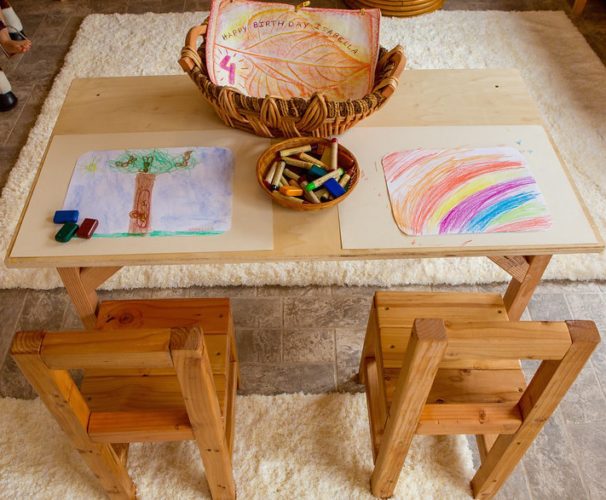Waldorf education is based on the educational philosophy of Rudolf Steiner, the founder of anthroposophy. Its pedagogy supports children in each stage of their development, providing them with a synthesis of arts and academics that inspire creativity, critical thinking and a lifelong love for learning.
“Our highest endeavor must be to develop free human beings who are able of themselves to impart purpose and direction to their lives. The need for imagination, a sense of truth, and a feeling of responsibility—these three forces are the very nerve of education.” Rudolf Steiner
During the early years of childhood (birth to age 7), children live in a sense of wonder of the world and all of its inhabitants. Their love of play, imitation, creativity and imagination are healthy and thriving, as well as, the cornerstone to all that they can and will achieve in the years to come.
Play is one of the most effective and joyful ways to “teach” children, and in the early childhood setting of a Waldorf classroom, play and structured activities foster the development of social, cognitive, emotional skills, and gross/fine motor skills. These efforts are carried out through activities such as imaginative play, painting, sewing, gardening, cooking, sculpting, building and circle work. The use of song, verse, games, stories, puppet shows and plays all pave the way to foundational pre-literacy and numeracy skills. As students move on to the elementary grades, their teacher will weave all aspects of the arts into their academic curriculum including, painting, drawing, music, modeling and drama.
“I think that it is not exaggerated to say that no other educational system in the world gives such a central role to the arts as the Waldorf School Movement. There is not a subject taught that does not have an artistic aspect. Even mathematics is presented in an artistic fashion and related via dance, movement or drawing to the child as a whole.” Konrad Oberhuber,Curator of Drawings, Fogg Art Museum, Professor of Fine Arts, Harvard Unversity
Through academics, arts, and various methods Waldorf education aims to develop and foster independent, creative thinkers who are able to act decisively, think creativity, utilize imagination and critical thinking, problem solve and acquire and develop the tools needed for their unfolding future.
A Joyful Child Preschool and Mixed Age Kindergarten offers an affordable way for families to experience the Early Childhood Waldorf curriculum. Enrollment is open. Call: 516 428 1320 or email: [email protected]. A Joyful Child also serves a bridge school for Haleakala Waldorf School, which was founded in 1972, and is now enrolling children ages two – High School. Financial assistance is available. You can contact the school for more information at 808-878-2511.
By Kellina Zagouras
As Featured in the Maui Mama Magazine




